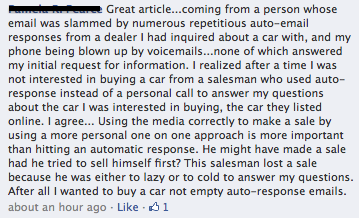 Most of us are familiar with the telephone game. For those that haven’t played, the game is very simple. A group of people stands in a line. A simple sentence, starting with the first person, is whispered into the next person’s ear one by one until the message reaches the end of the line. Typically, the sentence that is revealed by the person at the end of the line is significantly different than the one that was started with.
Most of us are familiar with the telephone game. For those that haven’t played, the game is very simple. A group of people stands in a line. A simple sentence, starting with the first person, is whispered into the next person’s ear one by one until the message reaches the end of the line. Typically, the sentence that is revealed by the person at the end of the line is significantly different than the one that was started with.
Just as in the game, this phenomenon of simple miscommunication exists in the workplace. Once you realize just how easily spoken communications can be changed inadvertently, the importance of effectively communicating is reinforced. Car dealerships are particularly prone to this given the complexity of many of the activities occurring. If a salesperson misunderstands the sales manager when working a deal with a customer, it can alter the rapport and general experience for that customer significantly. When a service advisor communicates with a customer ineffectively, the same thing can happen.
The obvious solution is accurate and detailed documentation in every customer and internal transaction. That being said, there are simply too many things happening and sound bites of information being exchanged that recording everything would be laborious and inefficient.
The solution lies in ensuring that you have processes and technology in place that record and track everything related to a customer’s transaction with your dealership in the most time-efficient manner possible. In addition, you should take the time to train your staff some basic effective communication skills. Simply understanding these basic concepts will help avoid misunderstandings.
- How You Relay Information Matters – People learn and retain information in different ways. Think about when you were in school. Did you retain information better by reading the textbook or listening to the lecture? The same applies in the workplace. Some people retain information better and more accurately when it’s delivered to them in a visual manner while some prefer to have it spoken to them. By learning how each of your co-workers best process information you’ll increase the effectiveness of communications and decrease the likelihood of mistakes and misunderstandings.
- The Content Relayed Must Be Tailored for Each Individual – This simply means that everyone must be cognizant of the knowledge level of the person that they are speaking to. A service advisor and technician can have much more complex and technical conversations about what’s going on with a customer’s car than they may be able to with the cashier or receptionist. A finance manager may be able to interact with a sales manager on a higher level than they can with a customer or salesperson. When you are interacting with someone and they will be relaying information to another person, make sure that you are speaking to their level of knowledge so that they understand what you are saying. Most miscommunication occurs simply because the recipient didn’t understand exactly what he or she was told and this can cause a lot of problems that could have been avoided. This is especially true when the information is being relayed to a customer.
By understanding these two fundamental concepts, you’ll be able to increase the effectiveness of communication between all employees and reduce the probability that miscommunications occur. By doing this, you’ll create a powerful environment that will allow you to operate more efficiently which will translate into a more efficient workplace, better customer experiences and increased revenue.




